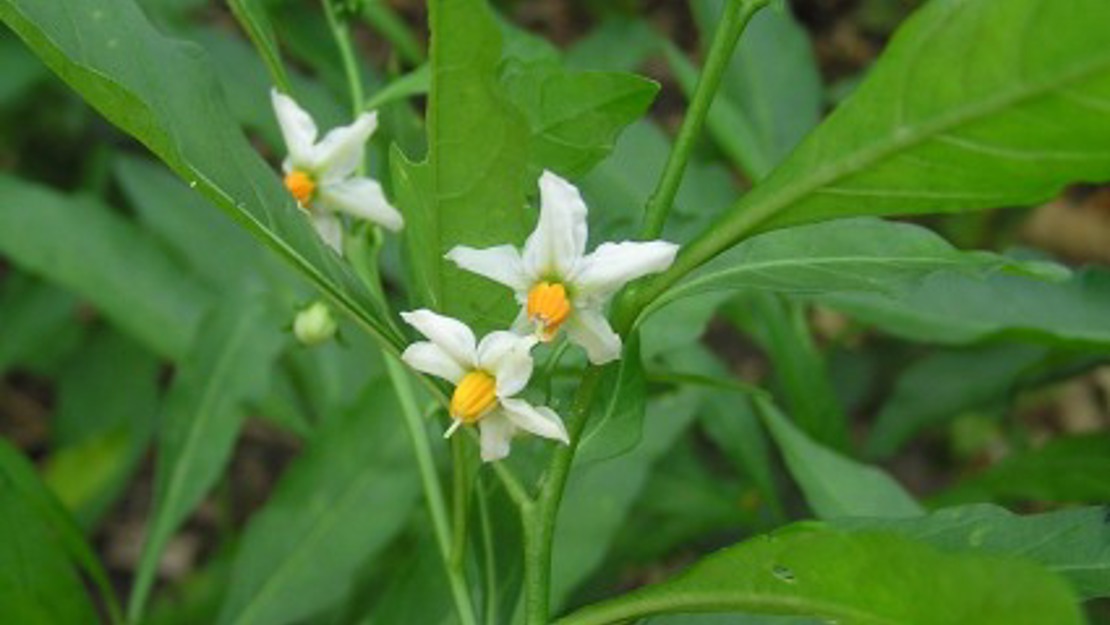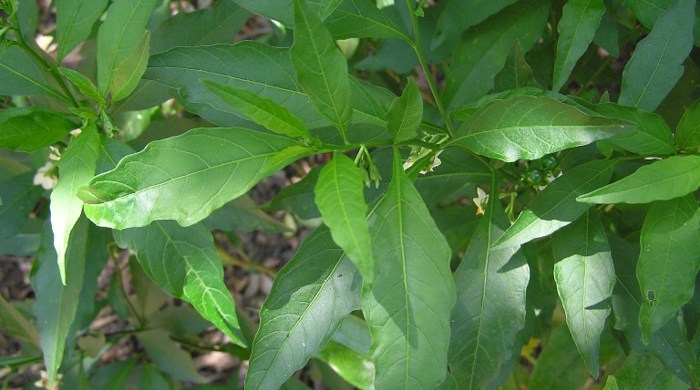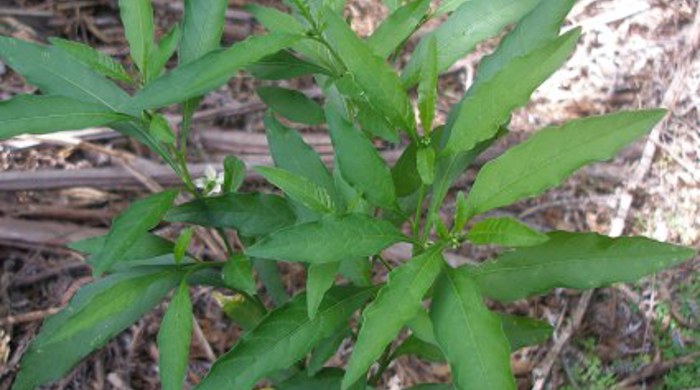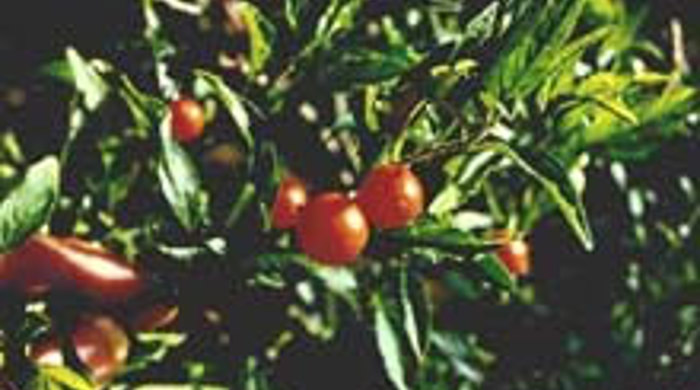Solanum pseudocapsicum
Jerusalem cherry
Also known as:
Madeira winter cherry
Family: Solanaceae
Origin: South America

Regional Pest Management Plan (RPMP) status
- Not a legally declared pest
General description
Erect perennial shrub < 1.2 m tall. Stems are wiry and much-branched. Leaves are dark green, < 12 x 3 cm, usually lanceolate and alternate. Flowers are white with yellow anthers, star-shaped and borne in October – May. Fruits are glossy red-orange berries < 2 cm in diameter.
What you need to know
Although Jerusalem cherry is not a legally declared pest plant, it may still be invasive in some situations. Consider lower-risk alternatives for your garden, such as native plants.
Habitats
Forest, shrubland, open areas, riparian margins.
Dispersal
Seeds dispersed by birds, water and soil movement. Human-mediated dispersal through dumping of garden waste.
Impact on environment
Can form dense stands and compete with native vegetation. Poisonous to pets, livestock and humans.
Control
Site Management
Follow up treated areas 3 times per year. Encourage natural regeneration of native plants or replant treated areas where possible after 2-3 treatments to establish dense ground cover and minimise reinvasion.
Recommended approaches
Physical control
Method: Dig or pull out.
Plant parts requiring disposal: Seeds.
Disposal options: Remove to greenwaste or landfill if practical.
Biocontrol
Biocontrol is currently not available for this species.
Community agrichemical control recommendations
No qualifications: Cut stump and paste freshly cut base of stems with glyphosate gel. Foliar spray with 100ml glyphosate green per 10L of water.
Certified Handler/Experienced agrichemical user: Foliar spray with 100ml glyphosate green per 10L of water and 20ml penetrant.
Caution: When using any herbicide or pesticide please read the label thoroughly to ensure that all instructions and safety requirements are followed.






